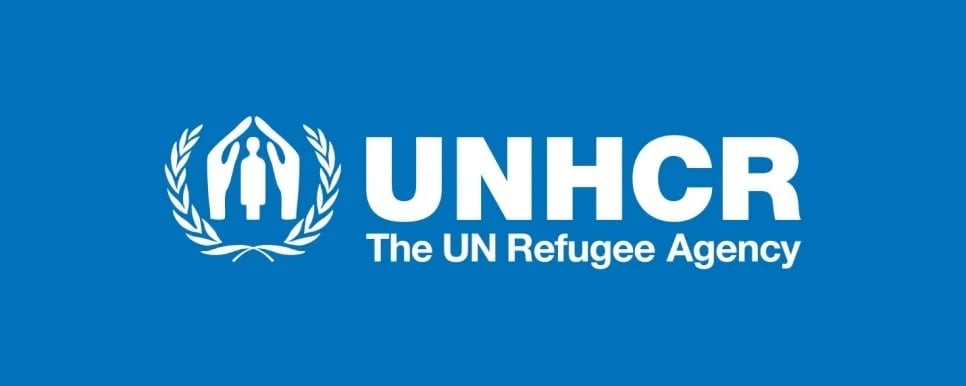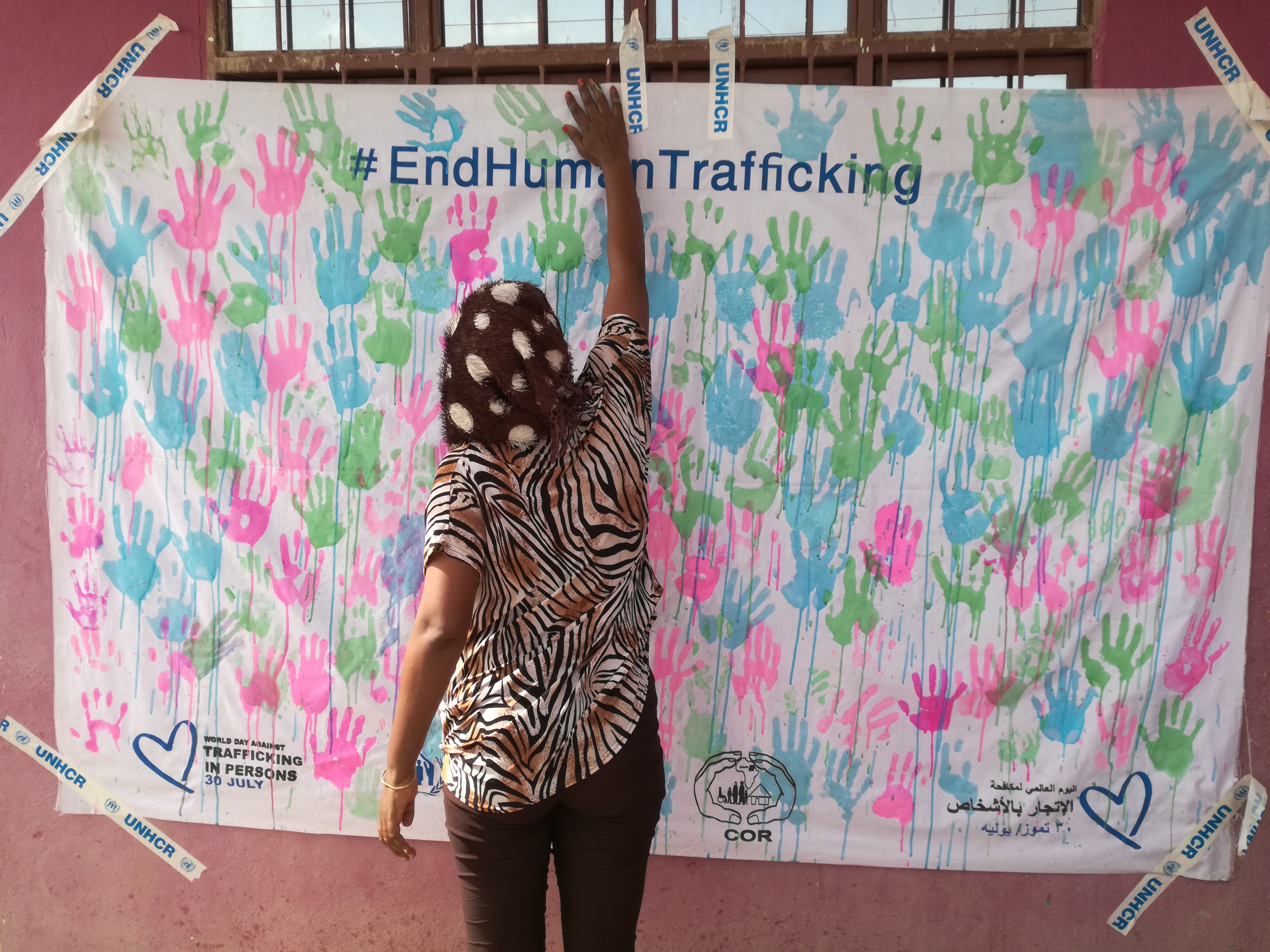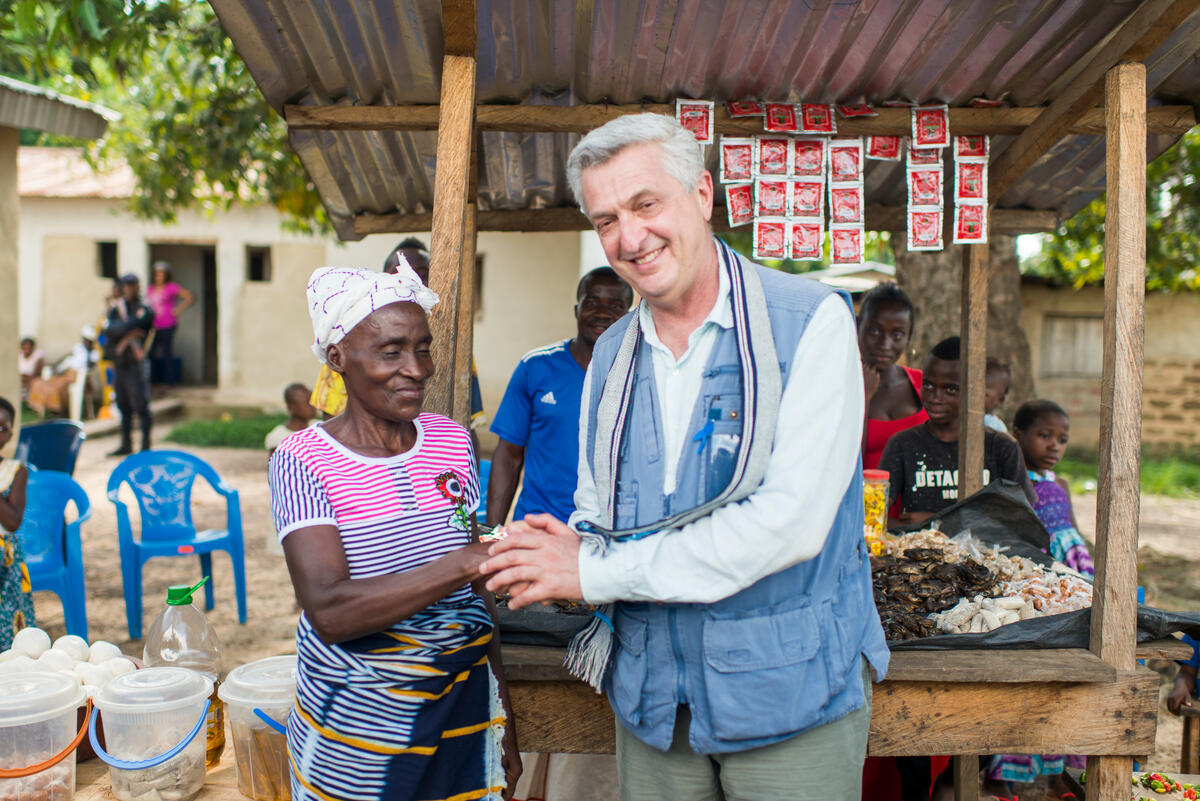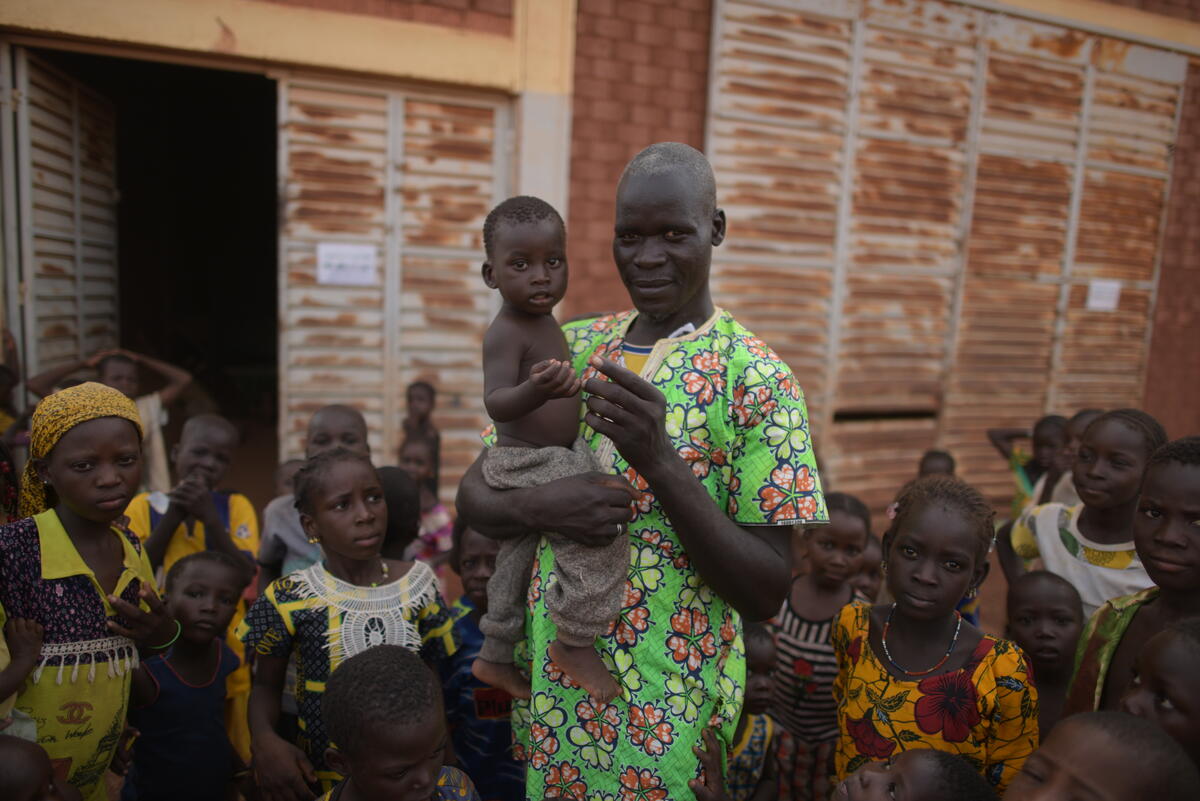UNHCR alarmed at escalating displacement in Côte d'Ivoire
UNHCR alarmed at escalating displacement in Côte d'Ivoire
With fighting in Abidjan and western Côte d'Ivoire this week UNHCR has seen a sudden and worrying rise in cross border displacement into eastern Liberia. Until mid-week we were seeing around 100 people crossing the border daily. But over the past 24 hours alone, the numbers coming across have swollen to 5000 people, according to local authorities. We have three teams currently on their way to the crossing points at Buutuo, Gborplay and Luguatuo to assess their situation. With these new arrivals, the number of refugees in Liberia is now approaching 45,000 people. Meanwhile in Abidjan, we have seen displacement in several neighbourhoods and our teams are attempting assessments today.
As of today, our most immediate concern is for the 39,000 internally displaced people in western Côte d'Ivoire. Insecurity has meant that UNHCR has not been able to operate in this part of the country for several days now. Fighting on Thursday near Danané appears to have triggered displacement of people towards the border with Liberia. Work on a camp for displaced people in Duékoué - which was aimed at relieving pressure on the Catholic mission where 9,000 people have found refuge for the past two months - has been placed on hold. Several villages on the axis Man-Duékoué are reportedly empty following the latest fighting.
Even without the latest fighting UNHCR believes the risk of displacement in western Côte d'Ivoire remains substantial. A joint assessment mission with our partners last week found reports of attacks on travelers by armed roaming groups and organized gangs. The Duékoué-Man axis has been particularly dangerous. Several villages have been attacked and houses razed after being looted in attacks in December and in January. Parts of Duékoué city have also been burned, leaving people with nothing to return to. With 23,000 IDPs, Duékoué has been host to the highest number of displaced people in the region.
Several people told us of armed men entering their villages on motorcycles and shooting at villagers, killing some. We also encountered groups who had been displaced repeatedly. In one village which was attacked in December the entire population fled and sought refuge in religious institutions or with families or friends in Duékoué. When ethnic fighting started in Duékoué in early January, people fled again to new locations.
With host families already struggling to feed and accommodate guests, such people are particularly vulnerable. Some IDPs who escaped attacks on their villages are believed to be still living and sleeping in the bush. We have also recorded testimony from women who were raped during the ethnic conflict in Duékoué in early January.









